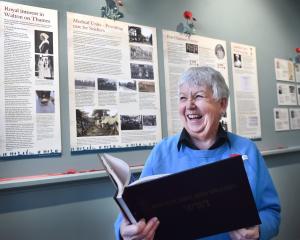University recreation services manager Daniel Porter said there had been 79,800 visits last month, compared with 57,000 visits in March last year, when the facility was in its old Anzac Ave building, just down the road from the stadium.
Mr Porter said the "significant" spike in visits could be attributed to having extra space. The new facility, which opened in mid-January, covers 5000sq m, compared with the previous 3000sq m.
The site was purpose-built as opposed to the old facility, which was originally a printing factory, meaning it made more efficient use of the space.
The extra room meant students could visit "any time they choose" without fear they would be competing for space.
"The old Unipol served a magnificent need for a number of years, but, of course, the ...
[student] population grew and it meant that the quality of the experience wasn't as good, simply because of the sheer numbers that were inside the building.
"That meant that there was a proven demand for more recreation space for students."
Mr Porter said the design of the building was a fruition of the ideas of Bill Turnbull, who was recreation services manager from the 1990s until 2009 when Mr Porter took over.
While manager, Mr Turnbull and his team, which included Mr Porter, investigated the best layout for a new facility.
These ideas included the "magic dimension" of 24m by 32m for sports courts, which allowed eight basketball hoops to be put up in one court area and allowed several sports to be played in one space.
"We won't know the true value of [Mr Turnbull's] thinking until other universities start copying what we are doing."
Mr Porter said the busiest time at Unipol was usually between 4pm, after most lectures finished, and 11pm, when the facility closed.
People who used the facility ranged from those who worked out on the gym equipment to those who played sport, which included basketball and a Renaissance rapier group using it for sword fighting.
Mr Porter said it was important for the university to have facilities like Unipol so students enjoyed their time at the university and were therefore more likely to stay.
"It gives the students a place to come to let off some steam [and] to develop that healthy lifestyle, which hopefully, they will continue post-university."










!["[The sector is] less competitive than groceries and banks that the government spend a lot of...](https://www.odt.co.nz/sites/default/files/styles/odt_landscape_small_related_stories/public/story/2025/04/billie_moore.jpg?itok=GN8uIA4p)
